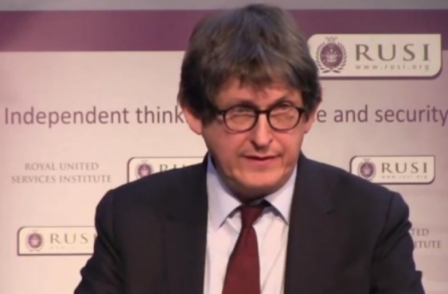
Journalists, surveillance and the police: How can the secret state learn to live with the fourth estate?
Monday, 30 March, Oliver Thompson Lecture Theatre, City University, Northampton Square, London – 6.30pm (sign up here)
Guardian editor Alan Rusbridger is among those taking part in a debate at City University later this month looking at the police, surveillance and journalists.
Joining him on the panel are former director of GCHQ Sir David Omand, former chief constable of British Transport Police Andy Trotter and general secretary of the National Union of the Journalists Michelle Stanistreet.
Moderated by me – the debate comes in the wake of last month’s Interception of Communications Commissioner report which revealed police forces have secretly accessed the call records of 82 journalists in order to find their sources over the last three years.
Later this month new legal curbs on police use of spying powers are set to come into force which require officers to apply to a judge to access journalists’ call records (when they are seeking to identify a source).
But when these applications will still be made in secret, and to phone companies (rather than journalists), will this be enough to keep whistleblowers safe?
Meanwhile, the Bureau of Investigative Journalism is currently appealing to the European Court because it believes journalists’ electronic communications are being accessed by the security services.
All this comes against backdrop of tense relations between journalists and the police.
At least 64 journalists have been arrested in the course of their work in the UK over the last four years and police officers face the sack if they speak to journalists out of turn.
This panel discussion will ask what should be done by the Government to protect journalists’ sources and what law enforcement and journalists’ themselves should be doing.
It will also look for ways to improve the currently somewhat strained relationship between law enforcement officials and the press.
Organised jointly by Press Gazette and City University undergaduate journalism degree department.
Networking drinks will be provided after the lecture sponsored by City University.
Email pged@pressgazette.co.uk to point out mistakes, provide story tips or send in a letter for publication on our "Letters Page" blog







